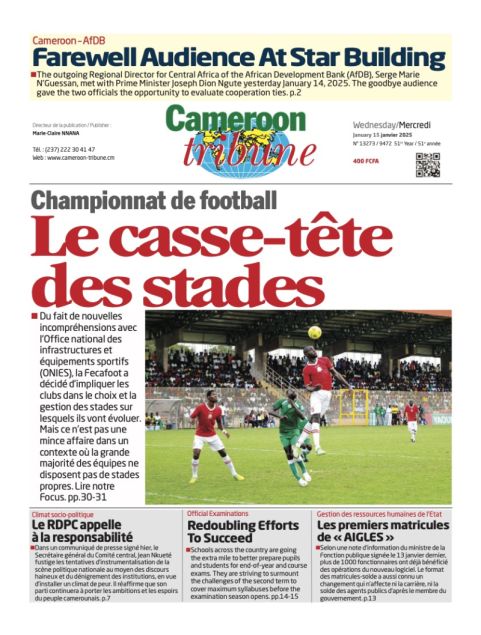Render It Mutually-beneficial
- Par Godlove BAINKONG
- 04 nov. 2021 11:57
- 0 Likes
Mobile money business that is growing almost at a speed of light is proving to be a gold mine whose fruits are seemingly not equitably distributed. Going by a survey piloted by the Bank of Central African States (BEAC), over 73 per cent of financial transactions in the sub region in 2020 were carried out via mobile money. Such represents about FCFA 10,883 billion.
This is not surprising looking at the population’s involvement in the innovation. In fact, the advent of mobile money has made life very easy for almost all and sundry. In the school milieu, some stakeholders have adopted the notion of online payment of tuition and examination fees and even electronic enrolment for various exams. In businesses as well, time and cost have been saved. Business transactions are made easier with commands passed and paid online. Money now easily moves from one end of the country or world to the other in less than no time. People in the remote parts of the country have been given opportunities to receive money from their loved ones anywhere in the world provided network is available.
It may be difficult to quantify the number of jobs created by the mobile money business in the country, but just observing the quantity of hitherto jobless citizens who now flood the streets with either big umbrellas, parading from one end to the other, or in makeshift boots sending and receiving money via the different networks, speaks of a powerful economic booster.
As good as the business is both to the population and mobile telephone operators, the fruits do not seem to be enjoyed by all; at least equitably. Cameroonians are quite aware of the legal instrument which obliges mobile telephone operators, who got their licences on the basis of facilitating calls, to pay in 3 per cent of their annual business turnover into the State in what is popularly referred to as “Special Telecoms Fund.” The Fund permits the State to develop the telecoms sector by taking services to where operators cannot by virtue of their profit motive, especially in the rural areas where profit margins are either low or inexistent, as well as pay the country’s contributions in international organisations concerned with ICTs. This w...
Cet article complet est réservé aux abonnés
Déjà abonné ? Identifiez-vous >
Accédez en illimité à Cameroon Tribune Digital à partir de 26250 FCFA
Je M'abonne1 minute suffit pour vous abonner à Cameroon Tribune Digital !
- Votre numéro spécial cameroon-tribune en version numérique
- Des encarts
- Des appels d'offres exclusives
- D'avant-première (accès 24h avant la publication)
- Des éditions consultables sur tous supports (smartphone, tablettes, PC)











Commentaires